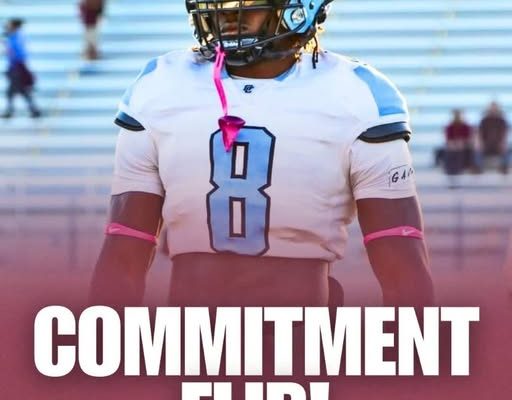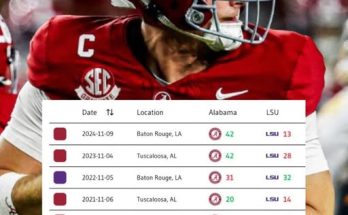Arch Manning has completely flipped the “flop” narrative in just a few weeks, and it’s one of the most fascinating storylines in college football this season. The grandson of Archie Manning, nephew of Peyton and Eli, and one of the most heavily scrutinized recruits in modern history, Arch came into the spotlight not just with immense talent but also with an impossible burden of expectation. For many, his name alone carried the weight of legacy and hype. But for months, maybe even years, there was doubt—whispers that he might never live up to the family name, that perhaps he wasn’t cut from the same cloth as his uncles who defined NFL eras. Today, those doubts are vanishing rapidly. In a matter of weeks, Arch Manning has gone from being a so-called “flop” to the beating heart of Texas football’s future.
It’s easy to forget how harsh the narrative once was. When Arch committed to Texas, the hype was immense. He was rated as the No. 1 overall recruit in the 2023 class, and analysts hailed him as a generational prospect. But as soon as he arrived in Austin, skepticism started to grow. He sat behind Quinn Ewers, who had already entrenched himself as the starter. When Arch barely saw the field in his freshman season, social media critics were relentless. Some claimed he was overrated, that his high school numbers were inflated by his famous name and by playing against weak competition in Louisiana’s private school league. Every time he didn’t play, the doubters got louder. And in a college football culture obsessed with instant gratification, patience wasn’t a virtue fans were willing to extend to him.
For much of that time, Arch stayed quiet. He didn’t complain. He didn’t transfer. He didn’t post cryptic tweets or statements about wanting more opportunities. He worked, waited, and learned. Those around the Texas program have consistently praised his professionalism and humility. His coaches have noted that he absorbed the playbook quickly, took coaching seriously, and never once acted entitled to anything. It was the sort of maturity that many freshmen lack—but it didn’t stop people outside the locker room from labeling him a disappointment.
Then, almost out of nowhere, the story changed. When Ewers went down with an injury earlier this season, it opened the door for Manning to step in. Most assumed the team would rely more on the run game or perhaps even split snaps. But from the moment Arch took the field, it was clear something had changed. He wasn’t playing like a backup trying to survive—he was playing like a quarterback ready to take over a program. The throws were sharp. The decision-making was clean. The confidence radiated. Suddenly, the offense looked alive in a way it hadn’t before. What was once a question of “Is Arch Manning ready?” turned into “How can Texas ever go back to the way it was before he played?”
In those first few appearances, Manning displayed what recruiting experts had seen in him all along: elite anticipation, natural touch, and a quiet command that few young quarterbacks possess. His ability to process defenses pre-snap was beyond his years, and his pocket presence—subtle movements, quick reads, precise timing—showed the DNA of a true Manning. Yet what stood out most wasn’t just his technical ability, but his poise. There was no panic, no sense of a player overwhelmed by the moment. Whether he was throwing a 40-yard strike or managing a crucial third down, he exuded calm.
That calmness translated into success. The Texas offense, which had sometimes sputtered under pressure, found a rhythm. Receivers trusted him, linemen played harder for him, and the energy of the entire team seemed to shift. The Longhorns started stacking wins, and suddenly, Arch Manning wasn’t just filling in—he was leading. Each game he played seemed to chip away at the old narrative that he was just another famous name.
The critics who once called him overhyped began to reverse course. Analysts who doubted his ability to handle the SEC-level competition Texas would soon face were forced to reevaluate. Fans who once questioned why he hadn’t transferred were now chanting his name in unison. Social media turned from ridicule to reverence, as highlight clips of his perfect spirals and clutch plays circulated everywhere. It wasn’t just that he was good—it was that he was composed, polished, and unflappable under pressure.
And perhaps the most impressive part of this resurgence is how Manning himself has handled it. In interviews, he’s been the same understated, grounded person he was when the critics were loudest. He hasn’t gloated or thrown shade at the doubters. He’s consistently credited his teammates, coaches, and family. That quiet confidence, that humility, might be his most defining trait. He knows the name “Manning” comes with both glory and scrutiny, but he’s carving his own lane within that legacy—one built on patience, work ethic, and quiet excellence rather than hype and entitlement.



